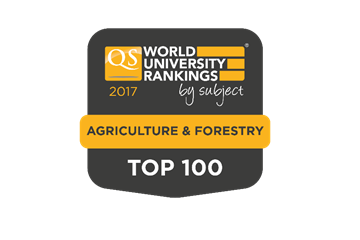QS World University Rankings: IPB is at the World’s Top 100 University by Subject Agriculture & Forestry

This year, Bogor Agricultural University (IPB) made impressive progress in the World University Rankings (WUR). IPB has shown as the world class university by maintaining its strong position in global rankings. The university is ranked at the world’s top 100 based on QS World University Ranking by Subject Agriculture & Forestry in 2018.
The QS World University Rankings by Subject is by far the richest global measure of higher education performance. There are 46 subjects listed in the QS WUR which rank the best universities based on discipline or department categories. The subjects analyzed in these rankings cover the vast majority of academic teaching and research. The rankings include a total of 13,930 positions, making them a uniquely valuable resource for students seeking the best place to fulfill their educational ambitions. To conduct the ranking, the British education research institute is evaluating 4,500 universities in the world in 48 scientific fields (www.topuniversities.com).
"Bogor Agricultural University position is in the same group (Ranking 51 – 100) with the University Putra Malaysia (UPM), Hokkaido University, and several other famous universities. As top-ranked university in the world, it is expected to increase our spirit to improve achievement and reputation” as stated by Prof. Anas Miftah Fauzi, who serves as the coordinator of World University Rankings Task-Force in IPB.
"This accomplishment certainly was achieved due to the cooperative works of all IPB communities. I hope this performance can be improved for the advancement of the university in the near future,” as stated by the Rector of IPB, Dr. Arif Satria, showing his appreciation.
The university rankings influence our view of academia and prestige and therefore affect institutional and personal decision-making, as well as policies and practices. This ranking can be a guide in establishing and strengthening academic cooperation (education, research, professional co-operation and downstream innovation), as well as in admission of new students. The World University Rankings is not only useful to monitor the university’s performance, but also to compare the university’s level with their partners and competitors for continuous improvement. (Wied)



